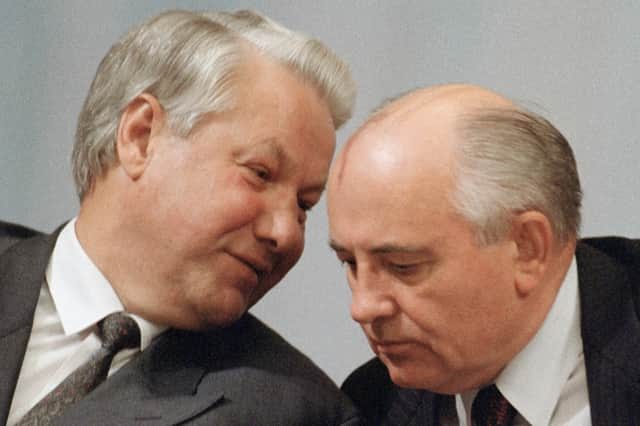Mikhail Gorbachev and Boris Yeltsin: The Lithuanian take on both is very different to their reputations in the West – Kenny MacAskill MP


Reading the biography of Vytautas Landsbergis, the Lithuanian president who led his country out of the USSR, his view of Boris Yeltsin and Mikhail Gorbachev was significantly different from the orthodox take. That’s of the former being a drunken buffoon, the latter a great statesman who sought to steer the Soviet Union towards democracy. One’s almost reviled, the other glorified.
To be fair, I bought into the image. I went to see Werner Herzog’s movie on Gorbachev which I enjoyed and it portrayed him as facing down the totalitarianism of the regime, until overwhelmed by the last remnants of Stalinism. His biography similarly suggested he’d foresworn repression and that the Baltic States were but a sideshow and a nuisance.
Advertisement
Hide AdAdvertisement
Hide AdBut seen from a Lithuanian perspective, Gorbachev was no innocent and Yeltsin quite the hero. Landsbergis narrates early discussions as “perestroika” was unveiled.
Gorbachev was far from embarking on democracy but simply seeking to keep the Soviet Union together. Changes were to be made but none that would allow any real challenge to the regime, and certainly not the secession of a republic, even if it had been invaded and incorporated against its will.
Such was Gorbachev’s intransigence that he initially espoused the denial of the hidden protocols in the Molotov-Ribbentrop pact in which Stalin and Hitler carved up eastern Europe. Then, when a referendum was to be conceded, it was only on terms that frankly were laughable in their distortion of a democratic process.
When Soviet troops attacked, killing innocent civilians and surrounding the Lithuanian parliament, the idea that the Soviet leader played no part was ludicrous.
Meanwhile it was Yeltsin, the supposed ‘drunken buffoon’, who immediately condemned the atrocity and spoke up for the rights of Lithuania and other Baltic States to decide their own destiny.
Most fascinating was the suggestion that Gorbachev might have been no innocent in the failed coup that toppled him and the regime, which saw Yeltsin climb on top of a tank to show his opposition. Was he involved, awaiting a call? I’d never thought of that but now I’m not so sure.
Kenny MacAskill is Alba Party MP for East Lothian
A message from the Editor:
Thank you for reading this article. We're more reliant on your support than ever as the shift in consumer habits brought about by coronavirus impacts our advertisers.
If you haven't already, please consider supporting our trusted, fact-checked journalism by taking out a digital subscription.
Comments
Want to join the conversation? Please or to comment on this article.

